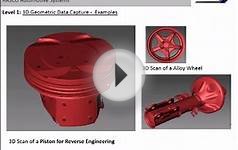What does a maintenance engineer do? | |
The work typically involves:
- planning and undertaking scheduled maintenance
- responding to breakdowns
- diagnosing faults
- repairing equipment
- supervising engineering and technical staff
- obtaining specialist components, fixtures or fittings
- managing budgets
- maintaining statistical and financial records
- ensuring compliance with health and safety legislation
- creating maintenance procedures
- managing stocks of supplies and equipment
Shift and 'on-call' work may be required, particularly where manufacturing equipment is in continual 24-hour operation. Career progression is often accelerated with a move into managerial positions or related areas of employment such as plant/production engineering.
- Manufacturing, construction and process companies (for example food and drink manufacturers)
- Utilities
- Local authorities
- Service industries
Self-employment via contract work, and occasionally consultancy, is possible for individuals with several years' experience. Many employers offer final year project work, sponsorship, vacation work and sandwich year placements.
Jobs are advertised via the internet, by careers services and recruitment agencies and in newspapers and relevant publications including TARGETjobs Engineering, The Engineer, The Chartered Engineer and their respective websites.
A BEng, particularly in electrical, manufacturing, mechanical or production engineering is necessary for entry. Appropriate work experience is also necessary. Many employers offer training programmes that enable registration with one of the professional institutions and ultimately qualification as a chartered or incorporated engineer.
- Working well under pressure
- Good verbal and written communication skills
- Relevant technical knowledge











